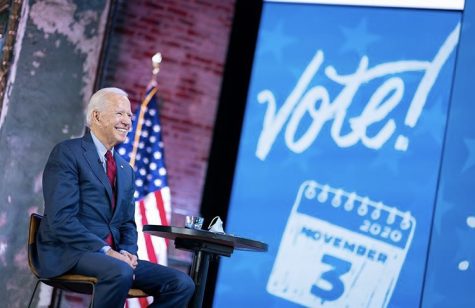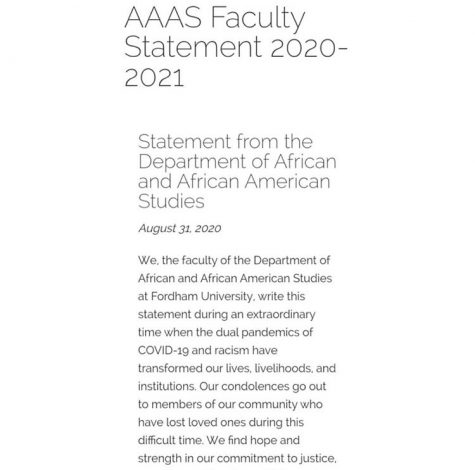Senior Researches Portrayals of Race in “The Bachelor”
macke
Duffy (pictured above) said she was “disturbed” by the way that people of color were represented on the shows. (Courtesy of Clare Duffy)
November 4, 2020
Popular culture and media can unintentionally reflect reality as a circumstance of the environment in which that media is produced. Clare Duffy, FCRH ’21, analyzed a specific example of this as she researched the types of racism seen throughout “The Bachelor” franchise.
“The Bachelor” franchise is a series of television shows beginning with “The Bachelor” in 2002. The series focuses on a single male bachelor who is expected to pick a wife from a pool of selected female contestants throughout the course of one season. Before long, the franchise premiered other shows that provided variations of the original, including “The Bachelorette” which premiered in 2003 and gender-swapped the premise: A single female bachelorette is expected to pick a husband from a pool of selected male contestants.
Duffy, a longtime fan of the franchise, said she was “disturbed” by the way that people of color were represented on the shows. Christopher Dietrich Ph.D., head of the American studies department, encouraged Duffy to focus her research on a project that incorporated something she was interested in. The combination of both her interest in race relations in America and reality television made “The Bachelor” a perfect subject for Duffy’s research project, she said.
Overall, the research project focused on the mechanics of racism and the employment of stereotypes within “The Bachelor” franchise. Duffy analyzed a variety of different parts of the series, including the incidents of racism acted out by contestants on the show, the treatment of “The Bachelorette’s” first Black bachelorette in 2017, complaints by the show’s audience about the show’s lack of sensitivity towards race and race-related topics and the show’s responses to those same complaints.
All of this bound Duffy’s research to the ultimate goal of understanding that the way race was represented and portrayed by “The Bachelor” is microcosmic of the larger American society.
“I decided to focus on how interracial relationships are portrayed on the show and how this portrayal models fears of miscegenation seen even after the Loving v. Virginia verdict,” Duffy said.
In her project, Duffy created a vast and substantial research process in order to fully develop her goal. Aside from spending a large amount of time going through old seasons of the show and taking notes, Duffy said she extended the lengths of her research by listening to podcasts and engaging in online discussion forums and Facebook fan groups in order to understand firsthand what the show’s audience thought about racism and the portrayal of race within the franchise. Fan surveys were also an essential part of extracting a response from the show’s fans.
The surveys Duffy conducted asked fans to give their opinions on the show’s many contestants as well as their opinion on the show’s representation of race. Duffy said she hoped to extrapolate a larger idea of how different segments of America approach and respond to racism.
“From my research, I found that interracial relationships are often portrayed in a negative light, or portrayed without any context for how it can be difficult to navigate racial differences in America,” Duffy said.
The responses that Duffy received from fans of the show ultimately matched her expectations: The predominance of white, conservative television producers and audience members attracted an audience that would refute the claim they are racist but still do not fully understand the different ways that the show can perpetuate racist ideologies.
“Even if they mean no harm, their treatment of people of color is extremely damaging to communities of color and perpetuates age-old racist narratives,” Duffy said about the show.
The process that Duffy went through while completing this project helped her better understand her desire to combine media and politics in her career. The aspect of combining critical analysis with kitsch and popular reality shows was especially intriguing to her, she said. Duffy said she believes that this kind of analysis can be applied to a job in which she can help improve the lives of marginalized groups.
“I believe that there should be younger, more educated people to properly represent people from all backgrounds,” Duffy said.












If you want a picture to show with your comment, go get a gravatar.